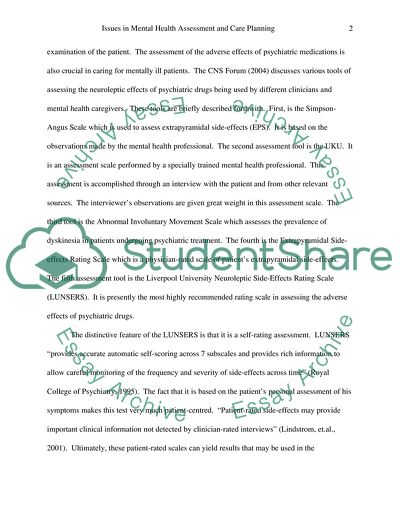Cite this document
(Issues in Mental Health Assessment Case Study Example | Topics and Well Written Essays - 2250 words, n.d.)
Issues in Mental Health Assessment Case Study Example | Topics and Well Written Essays - 2250 words. Retrieved from https://studentshare.org/health-sciences-medicine/1547970-community-assessment-and-care-planning-in-medication-compliance
Issues in Mental Health Assessment Case Study Example | Topics and Well Written Essays - 2250 words. Retrieved from https://studentshare.org/health-sciences-medicine/1547970-community-assessment-and-care-planning-in-medication-compliance
(Issues in Mental Health Assessment Case Study Example | Topics and Well Written Essays - 2250 Words)
Issues in Mental Health Assessment Case Study Example | Topics and Well Written Essays - 2250 Words. https://studentshare.org/health-sciences-medicine/1547970-community-assessment-and-care-planning-in-medication-compliance.
Issues in Mental Health Assessment Case Study Example | Topics and Well Written Essays - 2250 Words. https://studentshare.org/health-sciences-medicine/1547970-community-assessment-and-care-planning-in-medication-compliance.
“Issues in Mental Health Assessment Case Study Example | Topics and Well Written Essays - 2250 Words”. https://studentshare.org/health-sciences-medicine/1547970-community-assessment-and-care-planning-in-medication-compliance.


